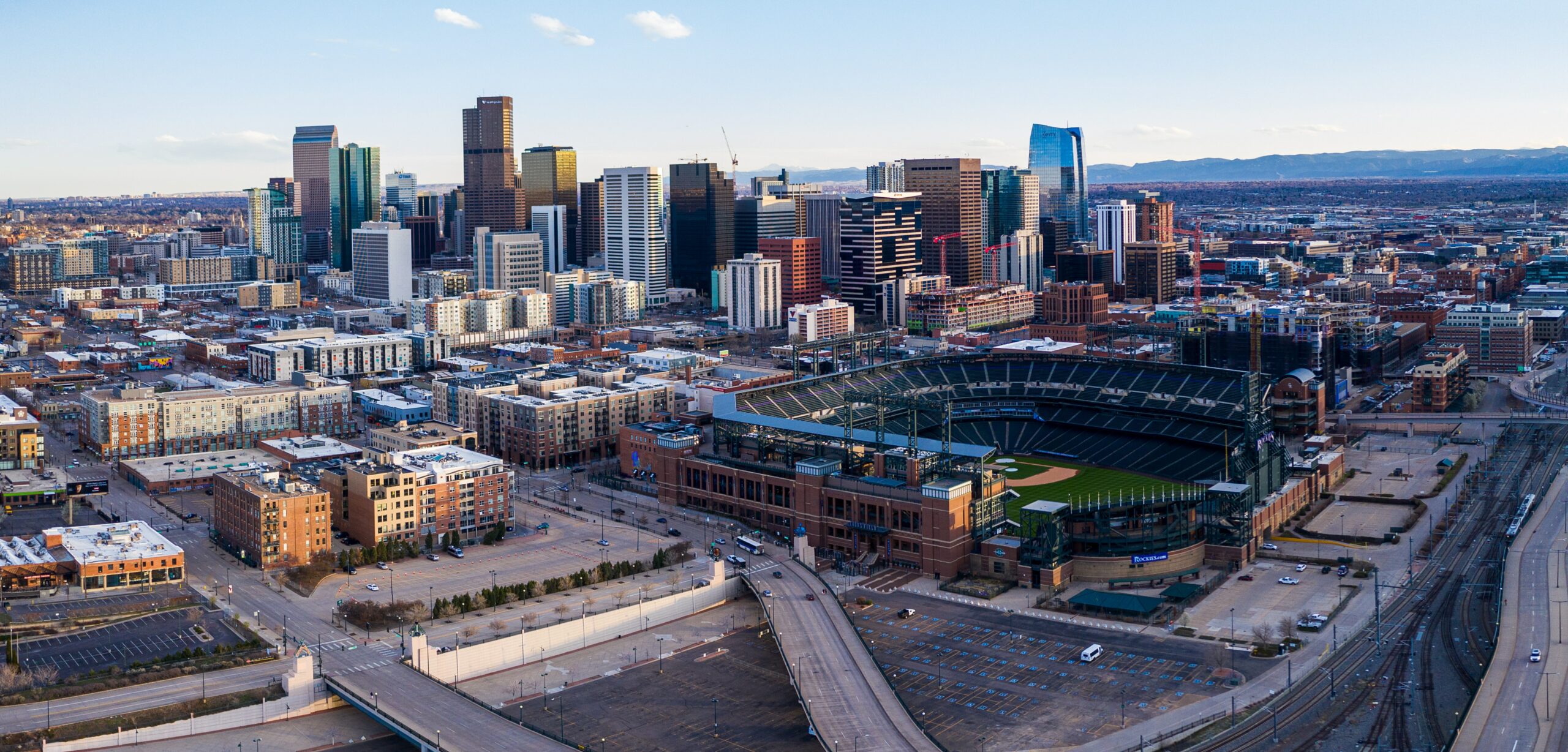
By Ryan George, real estate expert and founder/CEO of 420 Property
Colorado has been at the forefront of the cannabis industry since it decriminalized possession in 1975. In 2000, the state legalized medical marijuana. It made history in 2021 when it became the first state to legalize recreational cannabis (Washington also legalized recreational cannabis in 2021).
It’s been eight years since the first Denver dispensary sold recreational cannabis in 2014. According to the numbers, cannabis legalization has had a positive impact on the Denver real estate market and the city’s overall economy.
Colorado Cannabis by the Numbers
Denver is a prime destination for cannabis businesses. The city has a population of approximately 716,000. As of May 2022, the city has 154 licensed cannabis stores. That means Denver has about one cannabis store license per 4,650 residents.
The Colorado Department of Revenue reports that the state has issued:
- 155 medical cannabis licenses
- 206 recreational cannabis licenses
- 361 overall cannabis retail licenses (more than 150 dispensaries have locations in Denver)
- 399 cultivation licenses (183 for medical and 216 for recreational cultivation)
- 209 licenses for cannabis product manufacturers
- 37 delivery licenses (8 for medical and 29 for recreational)
- 28 cannabis transportation licenses
- 15 operators licenses, nearly all of which are in Denver or Denver suburbs
- 10 licenses for testing facilities
- 7 hospitality licenses, all but one of which are in Denver
- 1 license for cannabis R&D cultivation (located in Denver)
The Colorado Department of Revenue collected $423 million in revenue from cannabis sales in 2021. In 2020, Denver’s cannabis industry generated $70 million in local sales tax.
Cannabis’ Influence on Denver Commercial and Industrial Real Estate
Medical and recreational cannabis legalization increases demand for commercial and industrial properties in green zones. In one report, 36 percent of commercial real estate owners said that their property values increased after their states legalized cannabis sales. In Denver, some areas that hadn’t seen much economic development underwent a boom after recreational cannabis legalization. Suddenly, warehouses that drew little interest became appealing properties that investors could convert into profitable indoor farms that served the area’s growing number of dispensaries.
Storefronts also became more desirable. At first, the novelty of cannabis legalization likely attracted curious consumers. Today, dispensaries serve daily consumers, infrequent consumers, and tourists. One report shows that about 6.2 percent of Colorado travelers chose the state in part because of its recreational cannabis stores. At least 15 percent of travelers to the state visit a dispensary while in the state. Interest in cannabis contributes to the increased value of commercial real estate in Denver. Some storefronts already have licenses that let new business owners start generating returns immediately. As more companies invest in cannabis businesses, other stores, restaurants, and hotels in the community see more foot traffic. Cannabis attracts more people, who in turn spend money at businesses and increase the value of the area’s real estate.
Cannabis Has Improved Denver’s Residential Real Estate Values
Cannabis influences the value of residential real estate as well as commercial and industrial properties. One study finds that home values grew by $17,113 on average in states that have legalized recreational cannabis.
The study also finds that:
- Cannabis legalization encourages communities to invest in infrastructure and public services.
- Home values increase by about $470 for $1 million in cannabis tax revenue.
- Each dispensary added to a city increases property values by $519.
- Home values grow more in cities with recreational dispensaries compared to cities with legal cannabis that do not have dispensaries.
Recreational cannabis adds value to residential real estate in several ways. Emerging markets create new jobs that attract buyers. As more people move into the area, real estate values increase.
Taxes from cannabis sales also contribute to a community’s success. In Denver, all tax revenue from cannabis sales goes toward public education. As schools receive more funding, they can serve students better. When families realize that their children can receive better educations in places with well-funded public school systems, they tend to buy properties in those areas.
Recreational and medical cannabis in Denver has contributed to more jobs and better schools, so it isn’t surprising to see growth in residential property values.
The Future of Denver’s Cannabis Real Estate
Denver took another big step forward at the beginning of 2022. Now, businesses can apply for cannabis consumption licenses that make it legal for patrons to use cannabis products in designated areas or during events. The new licenses should clarify rules that regulate when and where people can consume cannabis without breaking laws. It could also make licensed businesses more attractive destinations for Denver residents and visitors, which should add more value to nearby real estate.
Companies involved in cannabis cultivation, consumption, and other areas of the industry need to ensure they choose green zone properties licensed for their intended purposes. 420Property.com makes it easy for you to compare Denver cannabis real estate options and ensure you get the right property at a price that fits your business plan.
Get involved in Denver cannabis real estate opportunities now to benefit from the city’s increasingly valuable market.









